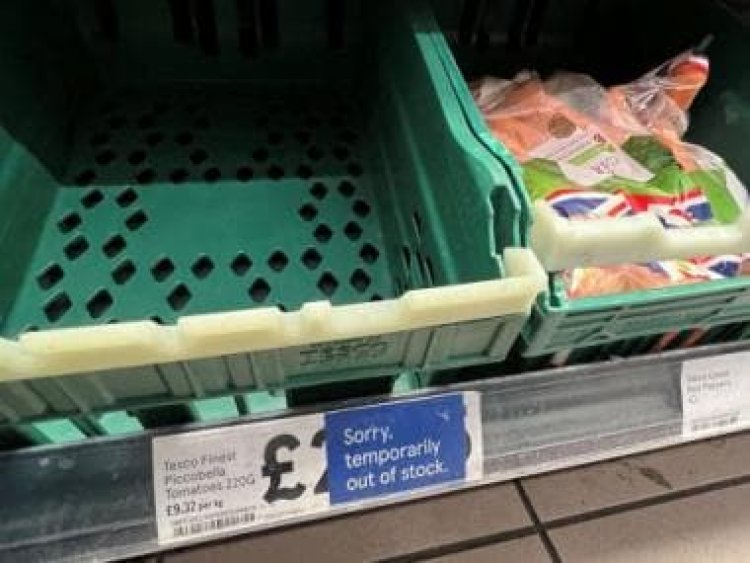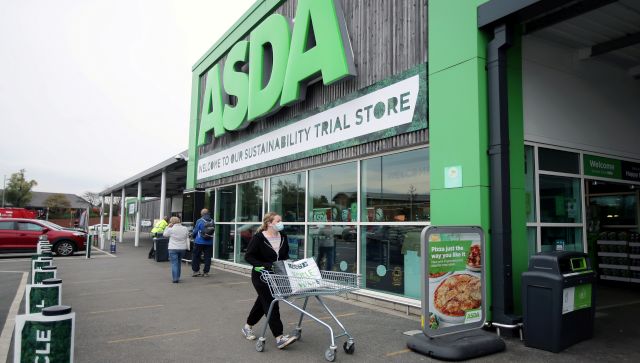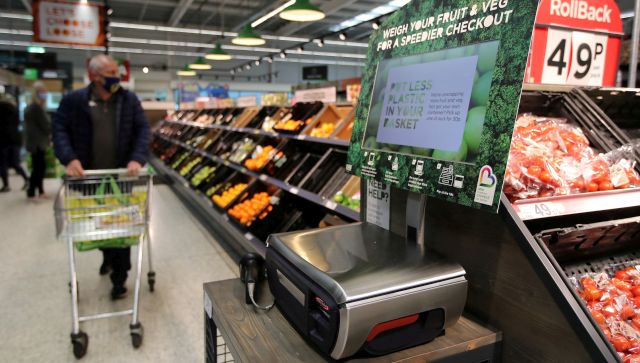In UK, one shopper can buy only two tomatoes, two cucumbers: Why are supermarkets limiting sales of fruits, veggies?
In UK, one shopper can buy only two tomatoes, two cucumbers: Why are supermarkets limiting sales of fruits, veggies?

It’s not the best time to be in the United Kingdom. The country is also facing a cost-of-living crisis, its economy is in the doldrums and fears of a recession are looming large. It has enough problems of its own and now there is a food crisis in the making. The UK has started rationing fruits and vegetables.
What’s going on?
Why are supermarkets rationing veggies, fruits?
Two of the biggest supermarkets in the UK – Morrisons and Asda – have limited the sales of fresh produce.
The purchase of perishables like tomatoes, potatoes, cucumber, peppers, lettuce and broccoli has been restricted. Every customer can buy only two or three of these items, not more.
Asda, Britain’s third largest grocery store, was the first to impose the ban and Morrisons is expected to join in from Wednesday, as photographs of empty aisles of fruits and shelves have surfaced from across stores in east London, Liverpool and other parts of Brtain.
Shoppers at Asda can buy only three items each of tomatoes, peppers, cucumbers, lettuce, salad bags, broccoli, cauliflowers, and raspberries. From Wednesday, Morrisons will only allow customers to buy a maximum of two each of tomatoes, cucumbers, lettuce, and peppers, according to a report in Telegraph UK.
Other supermarkets are also considering similar measures. The British Retail Consortium, which represents all the major supermarkets including market leader Tesco and No 2 Sainsbury’s, said the supply issues were industrywide.

Why is there a shortage?
Poor foreign harvests and a domestic farming crisis have led to shortages of fresh produce. In winter, the UK imports around 90 per cent of crops like cucumbers and tomatoes. They are important to keep supermarkets stocked during winter and spring. Britain produces only five per cent of tomatoes and 10 per cent of its lettuces during these months and ships the rest from overseas, reports Telegraph UK.
Difficult weather in southern Europe and northern Africa has disrupted the harvests of a range of crops. Morocco and Spain, which are among Britain’s major suppliers during winter, are facing extraordinary weather conditions.
Also read: Explained: Why Europe is likely to escape recession but the UK is in trouble
The volume of fruits from Morocco has been hit as growers have been battling cold temperatures, heavy rain and flooding over the past three to four weeks. The extreme and unusual overnight cold affected the ripening of tomatoes, the supplies of which have been particularly hit. To add to this, bad weather forced ferry cancellations, further affecting deliveries by lorries.
It doesn’t help that Morocco moved to curb some exports of tomatoes, onions and potatoes because of fears over the country’s own food security.
Imports from Spain have also been affected by the weather. Tomato volumes from the country’s Almeria region are 22 per cent lower than in February last year.
Spanish producers are concerned. “The situation is beginning to be worrying, as some companies are starting to have problems in meeting their clients’ schedules,” the Association of Fruit and Vegetable Producers’ Organisations of Almeria, Coexphal, said in a statement, reports Reuters.

Local supplies have also suffered. British horticultural production normally only starts in late March or April but domestic production has been hit by labour shortages and the rising cost of energy and fertiliser. Soaring energy bills have forced British farmers to switch off greenhouses, as they struggle to meet expenses.
How long will the shortage last?
The problem is expected to magnify with the shortages expected to last weeks.
Minette Batters, president of the country’s National Framers Union (NFU), said, “Everybody wants to avoid rationing, effectively, which is what we saw with eggs in December but I think there are going to be challenges on availability of some food items.”
The supply of salad ingredients like tomatoes and cucumbers is expected to fall to the lowest level since records began in 1985, according to the union. Peppers and other salad vegetables which are grown indoors were at risk, while there are also concerns over the production of potatoes, cauliflower and purple sprouting broccoli, a report in The Daily Mail says quoting Batters. However, the NFU has warned against panic buying.
Olly Harrison, who owns Water Lane Farm in Merseyside in North West England, told the publication that shoppers have to get used to the sight of empty shelves. “People are going to have to start eating some items like tomatoes seasonally again, because at the moment, without help, they just can’t be produced in this way.”
“It’s that simple: if something requires energy to be produced, and the cost of energy is getting higher and higher, no one is going to grow it,” he added.

The current issues with supplies are expected to continue for some time. “While disruption is expected to last a few weeks, supermarkets are adept at managing supply chain issues and are working with farmers to ensure that customers are able to access a wide range of fresh produce,” Andrew Opie, the BRC’s director of food & sustainability, said.
According to James Bailey, executive director of upmarket supermarket Waitrose, in a fortnight the shortages should end. “It’s been snowing and hailing in Spain, it was hailing in North Africa last week… that is wiping out a large proportion of those crops,” he told LBC radio. “Give it about a fortnight and the other growing seasons in other parts of the world will have caught up and we should be able to get that supply back in.”
What are farmers saying?
Some are playing supermarkets and others are pointing fingers at the government for not doing enough.
Jack Ward, head of the British Growers Association, told Telegraph UK that rationing was predictable after months of squeezing suppliers, whose payments for produce have not gone up as much as their costs. “If the retailers weren’t prepared to say to growers, ‘we’ll support you, we’ll give you the price that you need’, then the crops didn’t go in the ground.” He warned that the country would face similar problems time and again
The government has been criticised for failing to protect UK farmers from rising energy costs. The farmers’ union said that Royal botanic gardens were better protected from rising energy costs than vegetable growers.
Batters said that a government scheme unveiled at the start of the year to help companies cope with their bills does not cover any “farming or growing” businesses. “Without doubt” there would be more empty shelves in supermarkets in the coming months without government support, she warned.
With inputs from agencies
Read all the Latest News, Trending News, Cricket News, Bollywood News,
India News and Entertainment News here. Follow us on Facebook, Twitter and Instagram.
What's Your Reaction?



























































